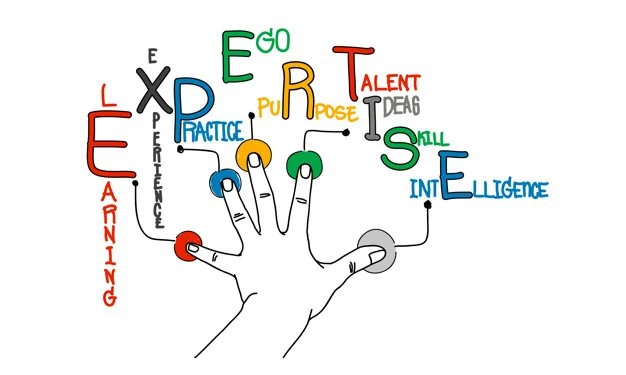
The world of work is changing rapidly. Employers seek flexible, well-informed graduates who are sophisticated communicators and analytical thinkers.
Humanities and Social Sciences subjects provide a broad understanding of the world in which we live, and how people can participate as active and informed citizens with the high-level skills needed for the 21st century.
From public relations to marketing to journalism to diplomacy, you’ll be equipped with plenty of skills to combat the competitive job market!
What is Humanities and Social Sciences all about?
Humanities and Social Sciences is the study of human behaviour and interaction in social, cultural, environmental, economic and political contexts.
The Humanities and Social Sciences have a historical and contemporary focus, from personal to global contexts, and consider challenges for the future.
Humanities vs. Social Sciences:
The subjects in humanities include philosophy, history, literature, religion, music and the human condition. Whereas social science is more related to human behaviour, it is a scientific study of human society and social relationships among individuals within a society. The field of study here is criminology, gerontology, law, political science, psychology and human development.
What are the specialisations in Humanities and Social Sciences?

Human and Social Sciences as a whole has many major fields, which include but are not limited to:
1. Anthropology
The word “Anthropos” in Ancient Greek means “human being” and Anthropology is a science of the totality of human existence, divided into four sub-fields: archaeology, physical or biological anthropology, anthropological linguistics and cultural anthropology.
The goal of anthropology is to provide a holistic account of humans and human nature and Anthropology courses can easily be found in different institutions in China.
2. Political Science
Political science is an academic and research discipline that deals with the theory and practice of politics and the description and analysis of political systems and political behaviour.
There are many subfields in Political Science, including political economy, international law, international relations, public administration, public law, political theory and philosophy and many more.
Political Science is methodologically diverse and appropriates many methods originating in social research.
3. Psychology
Psychology is an academic and applied field involving the study of behaviour and mental processes, which comes from the Ancient Greek “psyche” (soul) and “logy” (study).
It also refers to the application of such knowledge to various spheres of human activity, including problems of individuals' daily lives and the treatment of mental illness.
It is different from biology and neuroscience in that it is primarily concerned with the interaction of mental processes and behaviour, not simply the biological processes.
4. History
History is the story of humankind and how the past has influenced the present. It involves more than facts, dates and events and explores the different ways in which societies, cultures and nations have evolved from the days of ancient civilisation to the present.
As a historical studies student, you will learn about historical developments, events, social and cultural conditions, major turning points and the lives of people who shaped them.
5. Sociology
Sociology is the systematic study of society, pattern of social relationships, social interaction and culture of everyday life, which the goal is to develop a body of knowledge about social order, acceptance and change or social revolution on subjects ranging from micro-sociology level of individual agency and interaction to the macro level of systems and the social structure.
The focuses of sociology include social stratification, social class, religion, social mobility, gender and more.
What kind of subjects are taught in Humanities and Social Sciences course?
The subjects that you come across will vary, depending on the specialisation that you take in the major.
A glimpse of subjects that are offered in Social Sciences BA (Hons) in Brighton University:
|
Core Modules |
|
|
Elective Modules |
|
What are the skills and characteristics needed for Humanities and Social Sciences course?

To be able to succeed in the field of Humanities and Social Sciences, you will need various types of skills to equip yourself.
Among all the important skills that are needed in any field, you will find these skills useful for a career in the social science sector:
1. Communication Skills
Language is one of the most fundamental tools of a legal professional. It is no doubt that communication skills, whether it’s oral or written, are equally important to convey information in clear, concise and logical terms.
Without oral and written communication skills, you’ll struggle to carry out duties of a solicitor effectively in the court and when you are drafting letters and legal documents.
2. Questioning
Questioning skills are critical to your success as a legal professional and the ability to ask questions effectively can greatly impact your career in this field.
From simply interacting daily with other colleagues and clients to questioning witnesses on the stand, you will need some important questioning techniques like funnel questioning, asking probing questions, asking leading questions and asking rhetorical questions.
3. Analysing, Researching and Evaluating Skills
Being in the legal sector, reading large amounts of information and facts and figures is a part of the routine you cannot skip. Among the massive amount of information, the key is being able to identify what is relevant and what is not so that important points will not be missed out.
When doing the background study of a case, drafting legal documents and advising clients on complicated issues, researching and evaluating skills are important too.
4. Critical Thinking
Critical thinking is important in all fields of study, including Humanities and Social Sciences. No matter which field you are in, critical thinking skills are important to help you analyze situations and make informed decisions.
In the field of Humanities and Social Sciences, you will need to be able to understand problems, think critically and devise solutions to problems related to your clients to help them solve their problems.
What are the top Universities in the UK for Humanities and Social Sciences course?
The table below showcases the top universities in the UK for their Humanities and Social Sciences course.
|
University |
Programs Offered |
|
|
|
|
|
|
|
|
|
|
|
|
|
Also read:
- Rankings of universities in UK
- Want To Study In UK With A Limited Budget? Check Out Our Compilation Of The Most Economical Universities There
- The Cheat Sheet to Top UK Universities
What is the career outlook for Humanities and Social Sciences graduates from the UK like?
As mentioned previously, the career opportunity for this major is great and can always be found across industries and sectors.
Here are some of the career options that you can consider as a graduate:
- Business analyst
- Journalist
- Consultant
- News producer
- Copywriter
- Educator
- Research scientist
- Foreign service officer
- HR executive
- Market researcher
The wage that you will make while working in this field in the UK is comparatively high, but it is not the same across, depending on the occupation.
The below table showcases the different types of jobs that a graduate from Humanities and Social Sciences in the UK and the expected salary according to PayScale:
|
Occupation |
Estimated Salary |
|
Business analyst |
£ 36,000 - 70,000 per year |
|
Journalist |
£ 22,000 - 45,000 per year |
|
Consultant |
£ 40,000 - 90,000 per year |
|
News producer |
£ 25,000 - 60,000 per year |
|
Research scientist |
£ 38,000 - 70,000 per year |
|
Foreign service officer |
£ 28,000 - 65,000 per year |
How long is the duration of studies for Humanities and Social Sciences course in the UK?
The duration of studies will depend on the level of studies that is taken.
|
Bachelor’s Degree |
3 years |
|
Master’s Degree |
1-2 years |
What are the entry requirements for Humanities and Social Sciences in the UK?
Each university has different entry requirements and the list below does not generalise the entry requirement of universities in the UK as a whole.
|
Undergraduate |
|
|
STPM |
A pass in SPM / O-Level or equivalent with 5 credits including English and Mathematics with a pass in Bahasa Melayu and History in SPM |
|
English |
IELTS (minimum 7.0 overall), TOEFL (minimum 600 or 100) |
|
A Level |
Good passes in at least 3 GCE A-Level subjects and General Paper |
|
International Baccalaureate Diploma |
Good results A good score for SAT Critical Reading / Evidence-Based Reading and Writing |
|
Additional pre-requisite |
Interview or written test (for some universities) |
|
Postgraduate |
|
|
Bachelor’s Degree |
Good results |
|
Working experience |
Min. 6 months (vary on the universities) |
|
English |
IELTS (minimum 7.0 overall), TOEFL (minimum 650 or 100) |
|
Additional prerequisites |
Pass interview (for some universities) |
|
Supporting documents |
Recommendation letter, updated CV |
How much is the tuition fee to study Humanities and Social Sciences courses in the UK?
There is a different variant to tuition fees in the UK, depending on the course and university that is chosen.
The estimated tuition fee per year for Humanities and Social Sciences course in the top universities in the UK can be seen here:
|
Programme |
Estimated Fees (per year) |
|
Bachelor’s Degree |
£ 21,000 - 30,000 |
|
Master’s Degree |
£ 18,000 - 27,000 |
The fee above only covers the tuition fee and not other additional fees nor living expenses.
Living expenses of students in the UK depend on the location of the university and the city that you live in.
FAQ
1. Is a degree in Humanities and Social Science enough to be a psychologist?
It depends on the area of psychology that you want to venture in. If you’re looking into clinical psychology or therapy and counselling, you will need a Master to top up your qualification.
You can still work in the line of psychology, such as social psychology that allows you to work in an academic setting.
2. How do I choose the best university for Humanities and Social Sciences course?
You should always be prioritising a university that suits yourself. There are many factors to consider, such as campus environment, location, facilities and tuition fee.
You can contact our counsellors to have a better guide and consultation regarding this.
3. When can I enrol to a university in the UK?
If you’re interested to continue to study in the UK, the general admission will be different for each university.
Generally, for Humanities and Social Sciences degrees, only one intake is open all year long.
For instance, Sheffield Hallam University opens its intake in early August every year.
 +60173309581
+60173309581












